Slumber, Duluth: A Festival of Dozing
Chris Godsey goes deep into the talent pool to find out what's happening with Slumber Duluth, an all-night festival of sound and music.
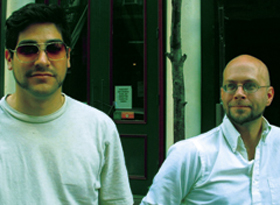
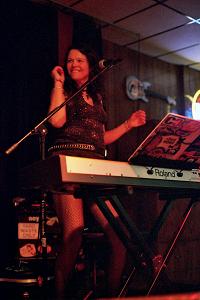
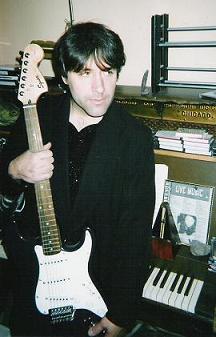
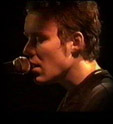
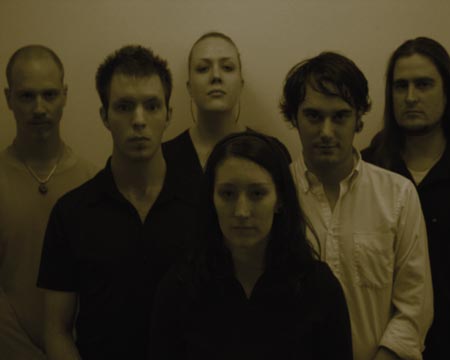
Duluth musician Aaron Molina is hoping he can lull you to sleep this weekend. He’s got a plan for doing so, too—13 hours of sedative music played by some of his favorite artists, including A Whisper in the Noise, Cloud Cult, the April Seconds, Alan Sparhawk of Low, and Paul Metzger of TVBC and GST.
Slumber Duluth–“An All Night Music Show to Sleep To”–starts at 7 p.m. Saturday. Till 3 a.m. Sunday, 16 bands and solo artists will play 30-minute sets. Then, from 3 till 8, those minds will combine and improvise, exploring sound in a time of infinite perception.
Molina’s inspiration for the event was “totally selfish,” he said. “The times I enjoy most in music are when it’s coming to an end or just beginning,” he said. “My favorite time to hear a symphony is when they’re tuning up. I appreciate the quietness of music.”
He was also inspired by experiences with if thousands, the band he comprises with Christian McShane. A note at ifthousands.com says the band’s music “has been described as atmospheric, ambient, experimental, found sound, trance-hypnotic, noise and drone.”
“I realized that some of our better shows were ones where afterward people came up and told us they fell asleep. I think it’s great if we’re mellow enough for people to sleep,” Molina said. “We played on a bill with GST and Paul Metzger one night, and Paul joined us. We played a 15- or 20-minute song, and he said, ‘I could play this all night.’ I thought that sounded like a good idea.”
Easy comparisons can be made between Slumber Duluth and Elegy, a 25-hour continuous drone held at Duluth’s NorShor Theatre in 2001 to memorialize murdered poet Michael Lenz. “The only rule at Elegy was drone,” Molina said. “Constant sound. I don’t expect that to be the case with this show. There will be occasional silence. The only rule is to think about trying to put people to sleep—to literally play as quietly as possible. It’s a challenge. If I have to, I’ll say, ‘Quieter. Quieter.’
“My main concern is relaxing audio and visuals. Those are things I enjoy—like the sensation of watching an old movie with the sound off and mellow music on; or a fall drive when you can hear the hum of car wheels on the road; a night drive with drone music. I want to make sure it’s interesting to look at and hear.”
“The idea had been in my head for a long time,” Molina said in September. “I talked to a lot of people about it. Over the last five months, I bet I said ‘Yes’ and ‘No” about it eight times. I’d brainstorm and plan, then say, ‘Nah.’”
But then he started contacting other artists, and they were excited and supportive, and his selfish idea started forming a concrete, collaborative event. Here’s how it’s shaping up:
•Doors at the at the Twin Ports Music and Arts Collective (MAC) open at 6 p.m. Saturday, Oct. 23.
•Music starts “sharply” (said Molina) at 7 p.m.
•Until 3 a.m. on Sunday the 24th, bands and solo artists will play 30-minute sets.
•Improvisational collaboration will fill the hours from 3 a.m. till 8 a.m.
•Complementing the music, Molina said, will be a “video element—some pre-produced, some on the fly.” Anyone can bring slides, DVDs, or other forms of video, and plans are being made for a live, two-way Web stream. “They can send footage to us, “ Molina said. “One artist in Scotland and one in Germany wanted to be here, but can’t, so they’re planning to take part on the Web.”
•”I’m encouraging people to bring sleeping bags and pillows,” Molina said. “Chris from the MAC is trying to track down cushiony things. I envision people laying down.”
•The MAC does not serve alcohol, and it will not be allowed there during Slumber Duluth, but multiple bars are within walking distance. Closing time in Duluth is 2 a.m. Smoking is not allowed inside.
•Admission is $5, and slumberers may come and go. “I don’t expect everyone to stay there all night,” Molina said.
“This isn’t about making money,” he said. “I want to support the MAC and get them some recognition. It’s a great venue. You don’t have to be drunk at a bar to enjoy music…. I’ve been thinking of this as an anti-rock show. I hate playing venues where people are talking over my music. It’s annoying.”
Eighteen acts—with styles from dark and dramatic to blippy, trippy, and electronic–are listed at slumberduluth.com. Sparhawk and if thousands aren’t scheduled for 30-minute sets, and Molina’s desires about the improvisation are conflicting: “I’m going to find it hard to be a part of playing,” he said. “I’m going to want to watch.”
“I contacted bands I thought could play the kind of music I’m looking for and improvise,” he said. “Lots of the people will be fine with improvisation. Some won’t.
“I’m interested in seeing Future Lisa and dARA [a.k.a. Larry Ravenswood]. Their music can be hard to swallow sometimes—it’s good music, but it can be hard to understand. I wish there were more horn players. And strings. I’d love it if there was a French horn—actually there will be, with A Whisper in the Noise. I’d love to see the French horn, GST, and the cello player from Cloud Cult trading notes.
“The April Seconds are going to be fun. They’re the laziest band in the world, but they’re amazing. They use two organs and a drum machine. I played a taped show of theirs for Al [Sparhawk] on a late night drive during a Chairkickers Music tour, and after 30 minutes of just staring straight ahead, he said, ‘Wow.’” (That show can be heard, via streaming audio, at www.sursumcorda.com/live/archive_feb_2002_events.htm.)
“Cloud Cult will be doing an experimental set. The Violettes are going to do a soft show, with sitar, drums, bass, and vocals,” Molina said. “I’ll be interested in seeing them improvise with Cloud Cult or Tim Kaiser, who does some circuit bending. I can’t wait to see Paul Metzger with anyone. He’s a self-taught guitar virtuoso. TVBC blends mid-eastern music with jazz and punk, and he makes a guitar sound that blends all three of those things. He turned a regular banjo into an eight-string banjo. He’s very intense. I’m excited to see him play.
“Nobody knows the Hickson Compact Group, but when I hear them play, I’m almost to the point of, ‘Why is if thousands even doing this?’ I think they’ll be the center of everyone’s attention.”
“I’m excited about this,” Molina said. And he’s not the only one.
“I’m looking forward to seeing what I do,” said Future Lisa, whose music has been described as “gothic opera.”
“I frequently stay up all night after shows,” she said. “Quite often, you’ve got a lot of people hanging out after a show with all this energy still coursing through them, but nowhere to put it. That’s especially true of young kids, I think. I like that this is an all-ages show. I’m looking forward to seeing how it all flows together. I love Aaron and Christian and if thousands. I’m looking forward to Al Sparhawk—rumor has it he’s going to show up some time in the middle of the night.”
West Thordson of A Whisper in the Noise—Molina calls their music “very dramatic”—said he was immediately intrigued by “the nature of the music.”
“There obviously aren’t a lot of events where that type of music is encouraged,” Thordson said. “This will be a rare chance. We’re going to be incorporating audiovisual elements into our performance. We’ve been working with emulating fire, and on some other techniques to take audiences into a more meditative mindset.
“I’m definitely taking part in the improvisation. I think it’s going to be very interesting. I usually don’t get to sleep till about eight in the morning anyway. I hope it doesn’t fall into a jam band category. In order to do it effectively, we’ll all have to be sensitive to others. It’s easy to just make noise, but Aaron is looking for something more intricate, and the type of musicians he selected, he selected for that approach. I’ve hung out with Craig [Minowa, of Cloud Cult] a lot late in the evening and early in the morning, and I have a good idea of what he’s talking about when he says that’s an interesting time. Something cool is going to happen.”
“I like the idea of music for sleeping,” said Bill Reichelt, who is Cheer Up Poems. “It seems like there’s something about experimental that…it seems like the people who make it want it to hurt real bad. I don’t share that point of view. There’s a lot to explore when things vibrate and when things are consonant, but that also drives a lot of people away. It does that to me. I’ll listen voluntarily, but probably not again. I guess I don’t need to be challenged that way. I don’t understand the point of challenging people by making them feel pain.
“This music won’t be something you hear all the time, but it won’t be painful. Growth doesn’t always have to come from pain.”
Reichelt said he doesn’t know what he’ll do in his 30-minute set, and he’s intrigued by the possibilities of the improvisation time. “It’s a tricky concept,” he said of sleep-inducing improv. “You have to ask yourself, ‘How do I do minimal lifting and still lift?’ It kind of runs contrary to many of our experiences as musicians—most often we feel like we have to make a big noise to be noticed. It will be fun to be in a situation most of us haven’t been in, and playing with people we haven’t played with. It’s invigorating to do it without expectation. It’s refreshing, like waking up in a different town.
“To be honest, I don’t really know much about a lot of the other people playing. I love the April Seconds. I think they’re the greatest. Tim Kaiser is a clever guy. He builds his own instruments, and he’s a really original thinker. I was amazed to realize that there’s somebody in Duluth who’s doing the stuff he does. I think Al Sparhawk is responsible for a lot of what—maybe everything—that’s happened in music in Duluth for the last five years, but as much because of his work ethic as because of what it produces. When Low or the Black-Eyed Snakes play, they’re totally there. They work very hard, and I think that informs other people.”
Cloud Cult’s Minowa connected Slumber Duluth to Duluth’s artistic growth and influence in broader terms. “Aaron contacted me two months ago,” Minowa said in September. “I loved the idea right away. Events like this help sculpt a community. Duluth is a green mecca of the future, and events like this attract those kinds of people. I also like the unique concept of an all night show. There will be a different crowed from what we usually see at clubs and bars.”
Minowa said Slumber Duluth’s sleepy ethos will provide an “opportunity to do songs we wouldn’t normally do. We wouldn’t be able to fit this genre into a club. People would start talking. We’ll play a really broken down version of songs we usually play. I don’t know if anybody but me will be playing. I’ll be able to do some ‘new’ Cloud Cult stuff that just doesn’t fit into the venues we usually play.
“It’s the later portion of the evening I’m really looking forward to. Especially if yoou headline, you don’t get to talk to people after you play usually. You just tear down and go home. It will be fun not to get the boot. This is an interesting collection of musicians—everyone has an eccentric edge. I’m really looking forward to if thousands and A Whisper in the Noise. Many of these artists are people we’ve played with, or whose concerts we’ve enjoyed. It will be interesting to see how we all wind up bouncing ideas off of each other, to see how that will work. It will especially be a dream to play with someone like Al Sparhawk.”
Late nights that bleed into early mornings are routine for Minowa. “At least three or four times a week I saty up all night,” he said. “That’s when I spend a lot of time in the recording studio—it’s the time of day when I’m in my prime creatively, when it’s all falling out of my head. Everything is quiet in those hours, even in an urban setting. That’s when the inner wackies come out, and I’m looking at myself and the world in a different way.
“The best music for going to sleep can be judged by what form of going to sleep you’re looking at. If it’s physical, that presents much more opportunity to be abstract, to play with no verse or chorus. To ride a root note, something that’s at a lower fluctuation. Alpha waves…. I hope it’s meditative. The spiritual energy generated in the place could be amazing.”
The show could also illustrate the connection between Duluth’s ecological, spiritual, and artistic powers, said Minowa, who has worked as an environmental advocate for a decade, and whose recording label, Earthology Records, is a “record company and an activist organization, working to revolutionize the music industry into operating in an ecologically sustainable manner,” according to earthology.net.
“Duluth has the potential to be a green mecca like Eugene or Boulder,” he said. “It’s the biggest city in the U.S. on a major body of [fresh] water. There are so many talented artists there. Demographically, the more artistic and creative and actively spiritual people there are in a city, the more movement there is to the political left. This event is the kind of thing that can be a beacon for people in that class.”